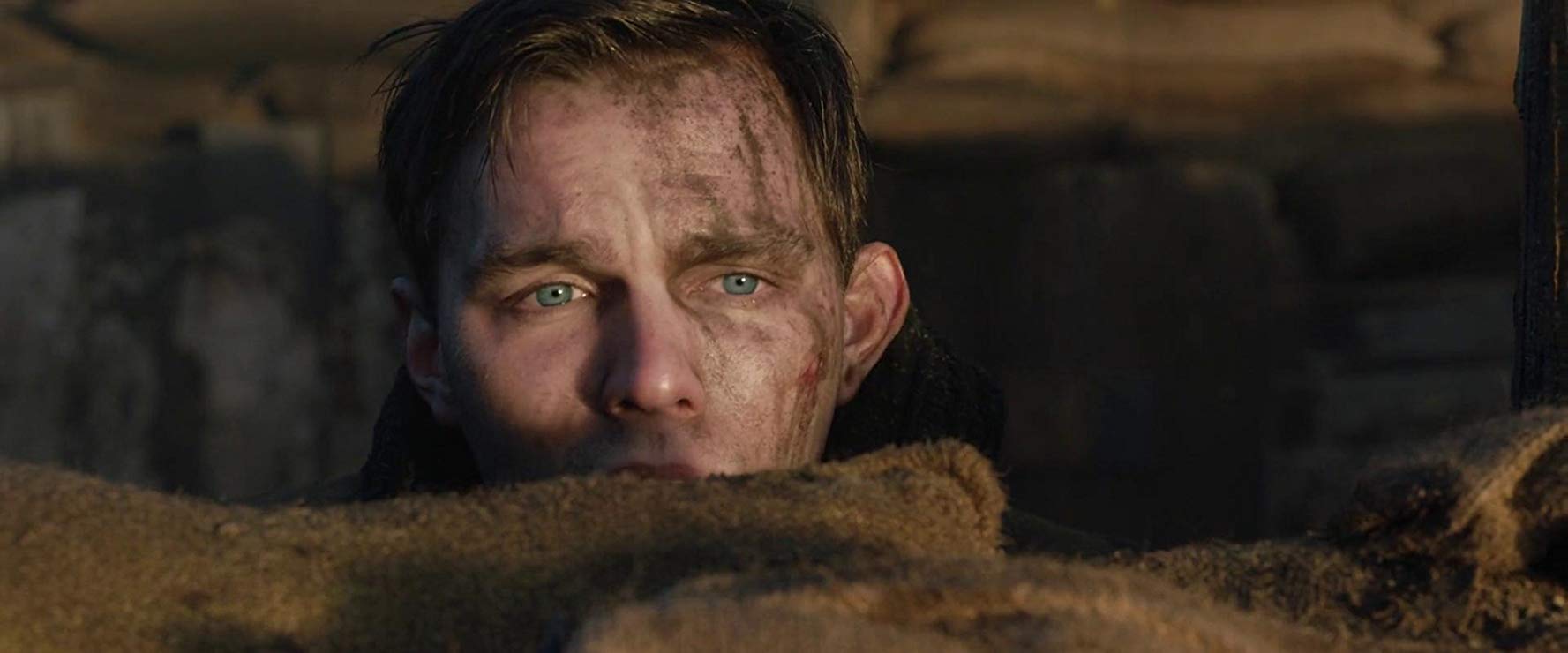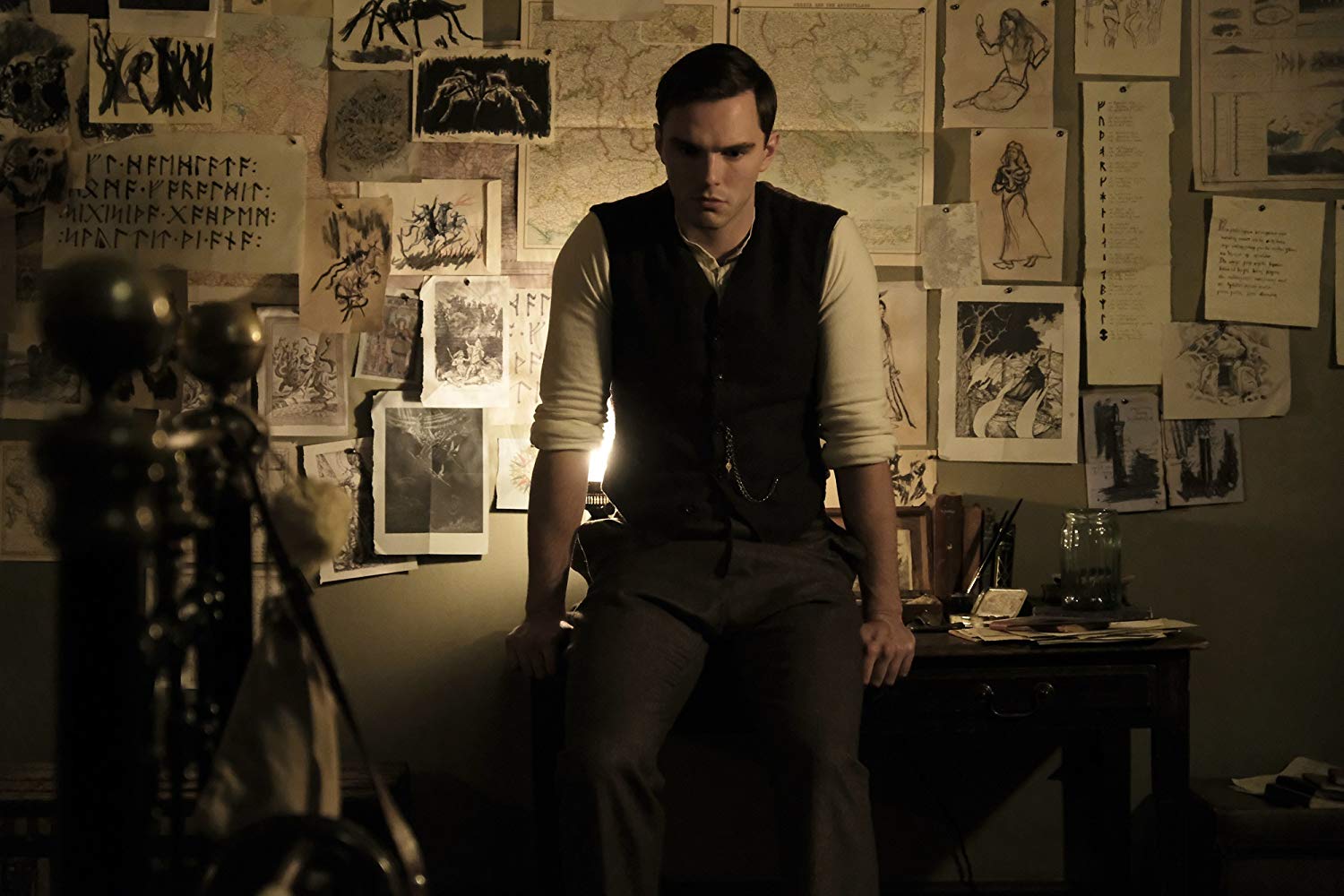The film opens on a battlefield. Two riders, one donning a cloak darker than the night’s sky, the other draped in one that’s as white as snow, charge at each other at full force, riding horses of their same colours. The black rider, in particular, reminded me of The Nazgul as seen in the Peter Jackson adaptations (the film is sprinkled with Peter Jackson-esque imagery, which is weird since this has got nothing to do with ‘The Lord of the Rings’ films.) As it turns out, we were just in the headspace of John Ronald Reul Tolkien (Nicholas Hoult), whose mind had just wondered for a second while resting at a World War I military campsite. We then cut to a flashback of Tolkien’s childhood — the entire film is Tolkien reflecting on the past while on a battlefield. That in and of itself is fine, except everything we do get about J.R.R. Tolkien’s life is just run-of-the-mill stuff. He lost his parents when he was very young (the scene in which he comes home and realises his mother has passed lacks a sting because their relationship is never explored) so the church finds a loving home with an elderly lady for him and his brother to live in. He goes to an esteemed school — at which point the brother character is casually forgotten about and never brought back again by screenwriters David Gleeson and Stephen Beresford — in which he befriends some privileged but down to earth kids. They occasionally get into trouble like having a tussle during rugby practice. Next, it’s his teenage years. His friends are now considered best friends, though we never actually feel their friendship only told through evolving dialogue like, “We should form a club,” “a brotherhood,” and “this is more than a friendship… it’s an alliance.” You wait for the screenwriters to finally say “fellowship,” so that you can roll your eyes. He falls in love with a fellow orphan, Edith (Lily Collins) and then is forced to break up with her because of his slipping grades. The filmmakers don’t give their romance the space to blossom into anything meaningful. They say they’re in love and we believe it only because of Lily Collins and Nicholas Hoult’s charm and chemistry.
Oh and meanwhile, he’s invented an entire language and is trying to get into Oxford. Later, World War I happens then the movie ends. After the film ended, I scrolled through J.R.R. Tolkien’s Wikipedia page and discovered far more interesting beats of his life than whatever Karukoski had presented. Tolkien in real life had fascinating and at times controversial views on politics, war and religion. Tolkien — may he rest in peace — is one of the most decorated authors of all time and I had hoped this film would present him as a human being with immense depth. I wanted to understand what made him tick, what kept him up at night, how he honed his craft and most importantly, his flaws. But the film takes the word “passion,” strips it of feeling and reduces it to a bunch of schoolboys simply saying, “I’m very passionate about X, but my mom won’t let me pursue it.” It also puts Tolkien on a pedestal the way Bohemian Rhapsody did the Queen band members. Except, at least purely from an entertainment level, Bohemian Rhapsody is highly energetic — Tolkien is monotonous. I’m not asking for a dark film, only a rich one.
There are moments that are evocative, like the short scene in which Tolkien and Edith go to the Opera and listen to Wagner. It’s a quiet sequence that isn’t interested in tying every second of its existence to phrases and scenes in his books/Peter Jackson’s movies. It’s a scene filled with genuine emotion and characters are allowed to breathe. There’s also Lasse Frank Johannessen’s serene cinematography that’s worth noting. But when the film ended, I realised I haven’t discovered anything intriguing about J.R.R. Tolkien. He’s totally unremarkable… or at least this movie is.

